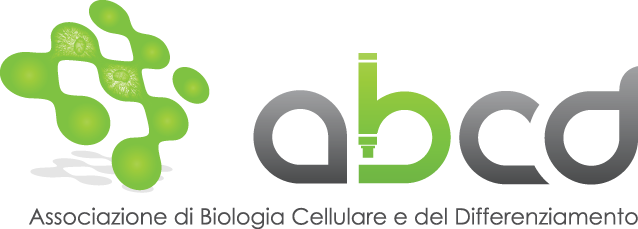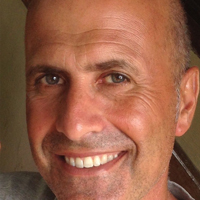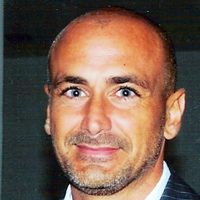

Friday, 28 September |
|
|---|---|
| 12:00 | Registration |
| 12:30 | Lunch |
| 13:45-14:00 | Welcome: Alessandra Montecucco & Luciano Conti |
| 14:00-15:00 | Session 1: Molecular pathways of cell stress response Chairs: Alessandra Montecucco and Giuseppe Biamonti |
| 14:00-14:20 | Eelco Van Anken (Milan) Cytotoxic endoplasmic reticulum stress is the consequence of inadequate BiP availability |
| 14:20-14:40 | Marco Corazzari (Rome)
ER stress, aldo-keto reductases and cancer cell resistance to ferroptotic cell death |
| 14:40-15:00 | Laura Zannini (Pavia)
TSPYL2 regulates SIRT1 and p300 activity in response to DNA damage |
| 15:00-15:50 | Plenary Lecture 1 Francesco Cecconi (Copenhagen, Denmark) Autophagy and autophagy-related molecules in cell stress and survival |
| 15:55-17:15 | Session 2: Molecular pathways of cell stress response Chairs: Cristina Mazzoni and Eelco van Anken |
| 15:55-16:15 | Maurizio Renna (Naples)
Mechanical cues control cell survival and proliferation via YAP/TAZ-autophagy axis |
| 16:15-16:35 | Giuseppe Caruso (Troina, EN)
Carnosine prevents amyloid-β-induced inflammation in microglial cells |
| 16:35-16:55 | Sergio Giannattasio (Bari)
The role of BRCA2 in cancer drug resistance and metastasis promoted by mitochondrial dysfunction |
| 16:55-17:15 | Luca Zardoni (Pavia)
Mechanisms that preserve fork integrity during replication-transcription collisions |
| 17:15-17:35 | Coffee break |
| 17:35-19:35 | Session 3: Stem cells, development and differentiation Chairs: Massimo Gulisano and Stefano Pluchino |
| 17:35-17:55 | Olga Barca Mayo (Genoa)
BMAL1 gates local proliferation of astrocytes in mice postnatal brain |
| 17:55-18:15 | Paola Panina (Milan)
Homeostatic adjustment of the protein factory during differentiation of endometrial stromal cells into decidual cells |
| 18:15-18:35 | Davide Pradella (Pavia)
A novel alternative splicing isoform of the Unc5b dependence receptor involved in the formation of specific blood vessels |
| 18:35-18:55 | Viviana di Giacomo (Chieti)
Alginate/Hydroxyapatite scaffolds promote adhesion, colonization and matrix deposition of osteoblast-like cells differentiated from dental pulp stem cells |
| 18:55-19:15 | Paola Rebuzzini (Pavia)
Morpho-functional alterations of perinatal-like cardiomyocytes derived from embryonic stem cells following arsenic exposure |
| 19:15-19:35 | Stefano Biressi (Povo, TN)
Identification of two novel subpopulations of skeletal muscle stem cells with different kinetic of activation |
| 19:35-20:35 | Poster Session |
| 20:45 | Dinner |
Saturday, 29 September |
|
|---|---|
| 8:45-9:45 | Plenary Lecture 2 Stefano Pluchino (Cambridge, UK) Signaling properties of stem cells and their cargo vesicles |
| 9:45-11:05 | Session 4: Tissue repair and regenerative medicine Chairs: Luciano Conti and Valentina Massa |
| 9:45-10:05 | Gaetano Cairo (Milan) Ferroportin-mediated iron release from macrophages is essential for efficient wound healing |
| 10:05-10:25 | Gabriele D'Uva (Milan) Glucocorticoids modulate Neuregulin/ErbB2 signalling: implications for heart regeneration |
| 10:25-10:45 | Pasquale Sacco (Trieste) Chitosan gels as potential platform for cellular mechanosensing |
| 10:45-11:05 | Davide Lecca (Milan) MicroRNA-125a-3p fine-tunes oligodendroglial maturation and contributes to impaired re-myelination in multiple sclerosis |
| 11:05-11:25 | Coffee break |
| 11:25-13:05 | Session 5: Pathological conditions Chairs: Francesco Cecconi and Stefano Biressi |
| 11:25-11:45 | Francesca Corsi (Rome) Contrasting chemotherapy-induced tumor repopulation with cerium oxide nanoparticles |
| 11:45-12:05 | Daniela Rossi (Pavia) Disruption of the astrocytic TNFR1-GDNF axis accelerates motor neuron degeneration and disease progression in amyotrophic lateral sclerosis |
| 12:05-12:25 | Diego Sibilia (Rome) Development of a yeast model to investigate the molecular aspects involved in the neurodegenerative disease FENIB |
| 12:25-12:45 | Giovanna Lattanzi (Bologna) Drugs that modulate lamin A/C - histone deacetylase 2 interaction in human cells |
| 12:45-13:05 | Valentina Massa (Milan) Cornelia de Lange Syndrome: neurodevelopmental impairment and cell death in experimental models |
| 13:05-13:15 | Closing Remarks |
| 13:15 | Lunch |
The poster's maximum size is 80 x 100 cm (width x height).
Correct format... 
 Wrong format...
Wrong format...
P.1 Giuseppe Biamonti (Pavia)
Metabolic stress impacts the splicing program of SRSF1 transcripts via JMJD6
P.2 Elena Botta (Pavia)
Mutations in threonyl-tRNA synthetase (TARS) are associated with non-photosensitive trichothiodystrophy
P.3 Erica Buoso (Pavia)
Regulation of glucocorticoid receptor alternative splicing and its effects on RACK1 expression and cells migration
P.4 Sara Castiglioni (Milan)
Magnesium and stress in human bone mesenchymal stem cells: the impact on osteogenic differentiation
P.5 Vittoria Cenni (Bologna)
Emery-Dreifuss Muscular Dystrophy-associated mutant forms of lamin A recruit the stress responsive protein Ankrd2 in the nucleus, affecting the cellular response to oxidative stress
P.6 Cinzia Civello (Pavia)
Intracellular Ca2+ dynamics of embryonic stem cells-derived cardiomyocytes are disrupted by polychlorinated biphenyls leading to a reduction of contractile properties
P.7 Alessandro Cutarelli (Trento)
A novel silicon device for 3D culture of human pluripotent stem cell-derived cortical progenitors
P.8 Fabrizio De Luca (Pavia)
Developmental neurotoxicity of two different platinum compounds, the conventional CisPt and the novel PtacacDMS. Inflammatory and oxidative stress pathways evaluation in rat cerebellum
P.9 Anna Di Matteo (Pavia)
A hierarchy of splicing factors integrating angiogenesis decisions
P.10 Stefania Farina (Pavia)
A role of the ALS-linked protein FUS in the biogenesis of DNA damage induced small non coding RNA
P.11 Stefania Filosa (Naples)
Oxidative stress defence in neuronal differentiation
P.12 Caterina Gasperini (Genoa)
MiR-135a-5p is critical for exercise-induced proliferation of adult neurogenesis
P.13 Maria Sara Magarò (Modena)
Muscle-to-bone crosstalk: the Wnt/β-catenin pathway is a candidate mechanism mediating the signalling between C2C12 muscle cells and 2T3 osteoblasts
P.14 Lucia Maita (Pavia)
DNA damage signaling after metabolic stress and its impact on degenerative disorders
P.15 Maria Luisa Malosio (Milan)
Molecular and cellular mechanisms underlying metabolic alterations induced by high fat diet
P.16 Orietta Pansarasa (Pavia)
Innovative 3D neural network in a conductive cellulose-based scaffold
P.17 Annalisa Pecoraro (Naples)
L3 is involved in the translational reprogramming in 5-FU chemoresistance
P.18 Annapina Russo (Naples)
Ribosome-free L3 targets E2F pathway: a new p53 independent mechanism linking ribosomal stress to cancer cell proliferation
P.19 Roberta Russo (Palermo)
Nickel is toxic and affects gene expression in sea urchin embryos
(Paracentrotus lividus)
P.20 Manuela Stefanello (Milan)
SEL1L involvement in neuronal cytogenesis and gliomagenesis
 Francesco Cecconi is Full Professor of Developmental Biology at the University of Rome Tor Vergata, Unit Head at the Danish Cancer Society Research Center in Copenhagen, Denmark and member of the European Molecular Biology Organization (EMBO).
Francesco Cecconi is Full Professor of Developmental Biology at the University of Rome Tor Vergata, Unit Head at the Danish Cancer Society Research Center in Copenhagen, Denmark and member of the European Molecular Biology Organization (EMBO).
As a Max-Planck-Institute researcher (MPI of Biophysical Chemistry, Göttingen, Germany) in the field of developmental cell death, he has described the function in vivo of Apaf1 (1997), a master regulator of mitochondria-dependent apoptosis. In 1999, he was awarded a Telethon Scientist position, and since then he is the Head of the Molecular Embryology Lab at the Department of Biology, University of Tor Vergata, Rome, Italy. After his seminal work on the pro-autophagy molecule Ambra1 (2007), he became a world-leader in the field of autophagy, while producing in parallel key papers on the role played by apoptotic molecules in synaptic degeneration.
He is author of more than 150 publications in peer-reviewed journals, including Nature, Cell, and Nature Cell Biology. In recent years, he has developed a strong expertise in the role played by autophagy in cancer and his team is dissecting the regulatory network of this process by multidisciplinary approaches.
 After receiving his MD (1995) and PhD in Neuroscience (2004) from the University of Siena (Italy), Stefano completed a residency program in Neurology at the same University (1999) and received additional training at the Brain Repair Centre, Cambridge University, UK (1996-1998). He then completed two Post doctoral fellowships (2004-2005) with Gianvito Martino at the San Raffaele Scientific Institute, Milan (Italy), where he progressed to the position of Project and the Group leader (2005-2010). Stefano is a University Reader in Regenerative Neuroimmunology and Honorary Consultant in Neurology at the University of Cambridge, UK, within the Clifford Allbutt Building - Cambridge Biosciences Campus (2010-). He has also been a European Research Council (ERC) Starting Independent Researcher (2010) and current member of the Department of Clinical Neurosciences.
Current projects in the PluchinoLab are exploring the cellular and molecular mechanisms regulating the therapeutic plasticity of neural stem cells in complex CNS diseases such as multiple sclerosis, spinal cord/brain injuries and stroke. While keeping an eye on next generation stem cells, either induced pluripotent stem (iPS) or induced neural stem (iNS) cells that are being tested via classical experimental cell therapy approaches, we are also devoting special attention to the study of the different modalities by which stem cells signal to the brain and the immune system (neuro/immune interactions).
After receiving his MD (1995) and PhD in Neuroscience (2004) from the University of Siena (Italy), Stefano completed a residency program in Neurology at the same University (1999) and received additional training at the Brain Repair Centre, Cambridge University, UK (1996-1998). He then completed two Post doctoral fellowships (2004-2005) with Gianvito Martino at the San Raffaele Scientific Institute, Milan (Italy), where he progressed to the position of Project and the Group leader (2005-2010). Stefano is a University Reader in Regenerative Neuroimmunology and Honorary Consultant in Neurology at the University of Cambridge, UK, within the Clifford Allbutt Building - Cambridge Biosciences Campus (2010-). He has also been a European Research Council (ERC) Starting Independent Researcher (2010) and current member of the Department of Clinical Neurosciences.
Current projects in the PluchinoLab are exploring the cellular and molecular mechanisms regulating the therapeutic plasticity of neural stem cells in complex CNS diseases such as multiple sclerosis, spinal cord/brain injuries and stroke. While keeping an eye on next generation stem cells, either induced pluripotent stem (iPS) or induced neural stem (iNS) cells that are being tested via classical experimental cell therapy approaches, we are also devoting special attention to the study of the different modalities by which stem cells signal to the brain and the immune system (neuro/immune interactions).